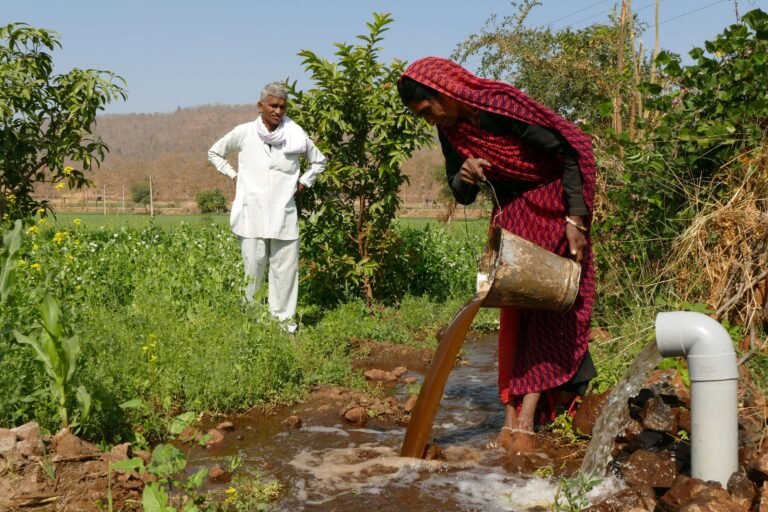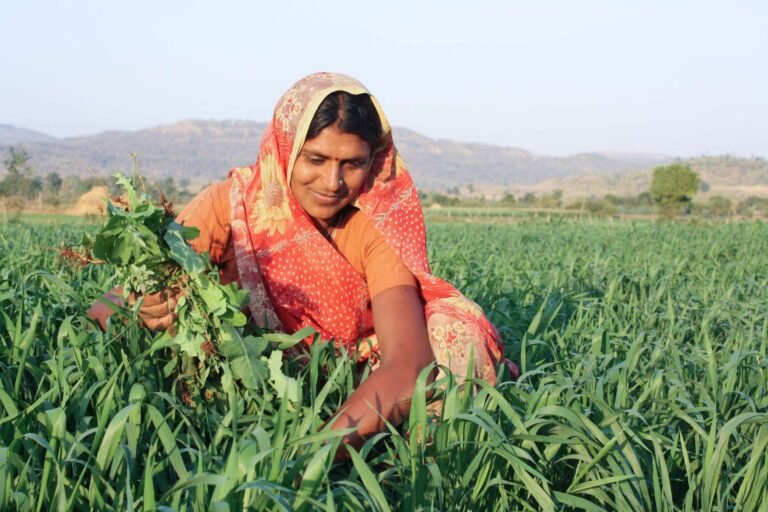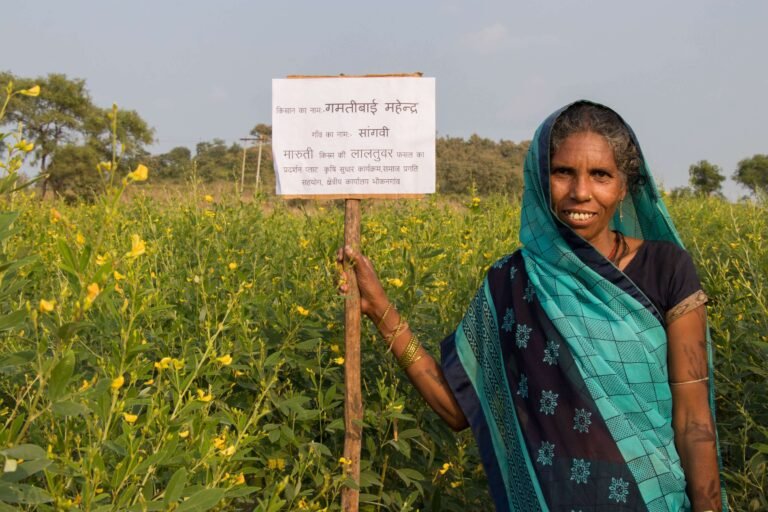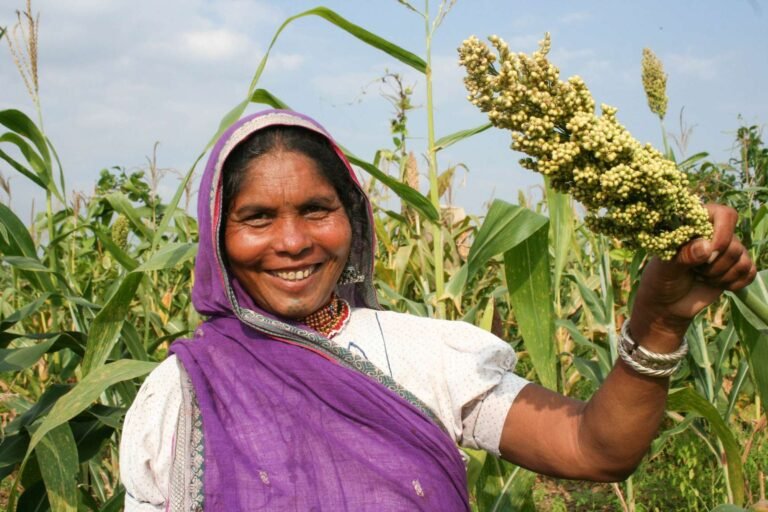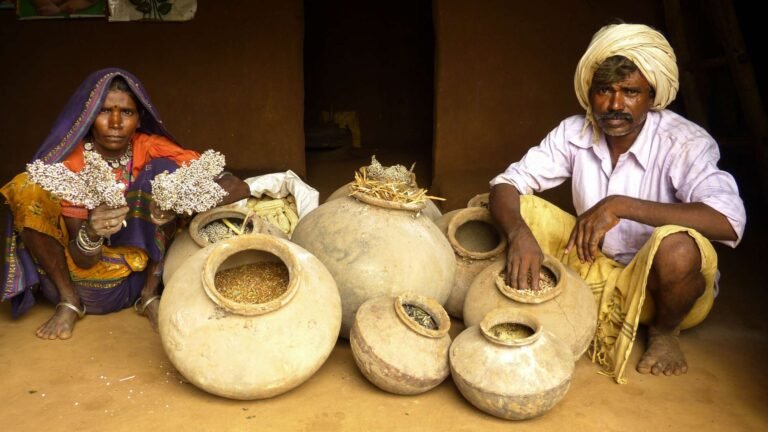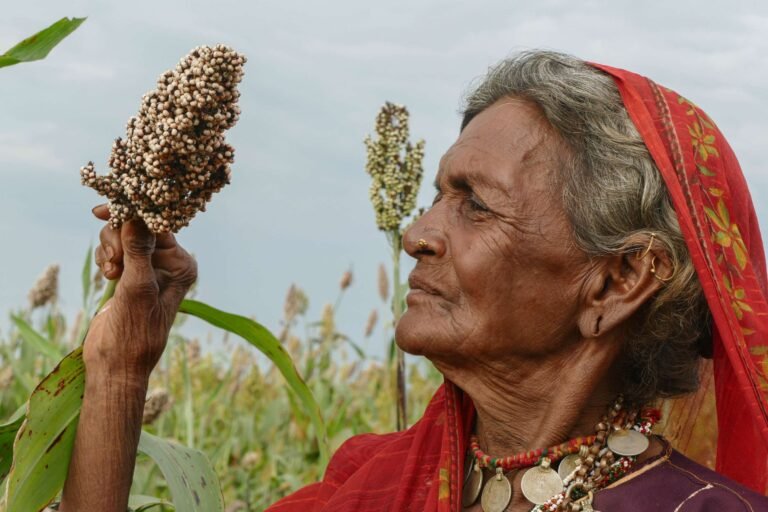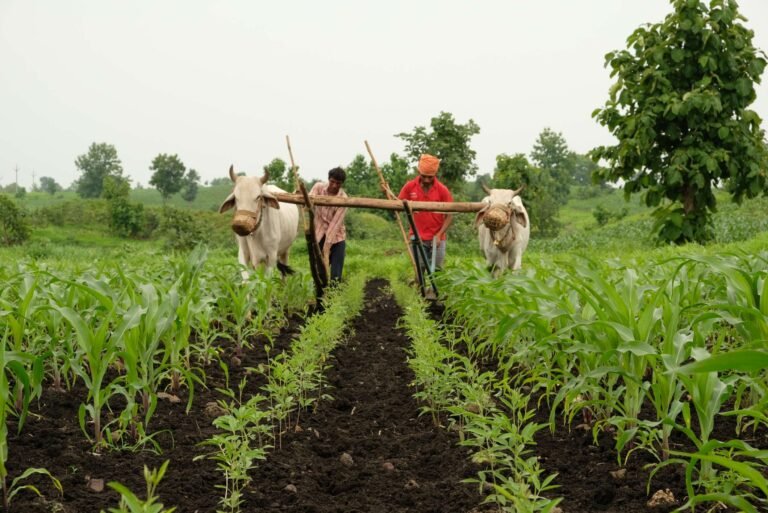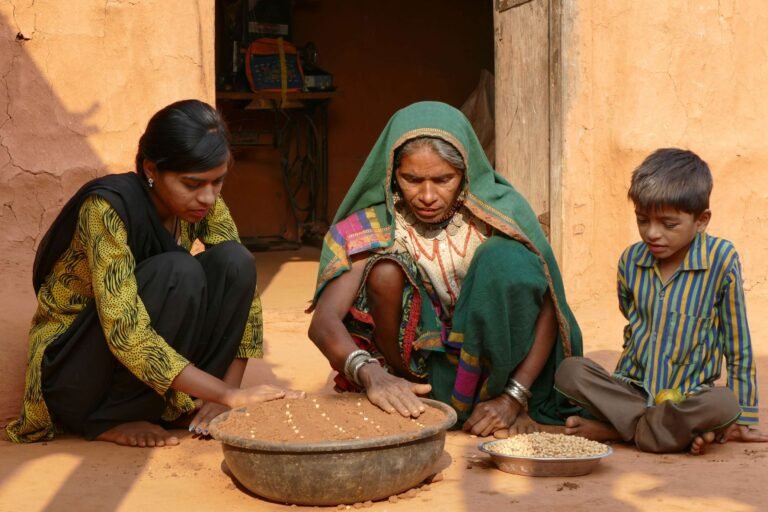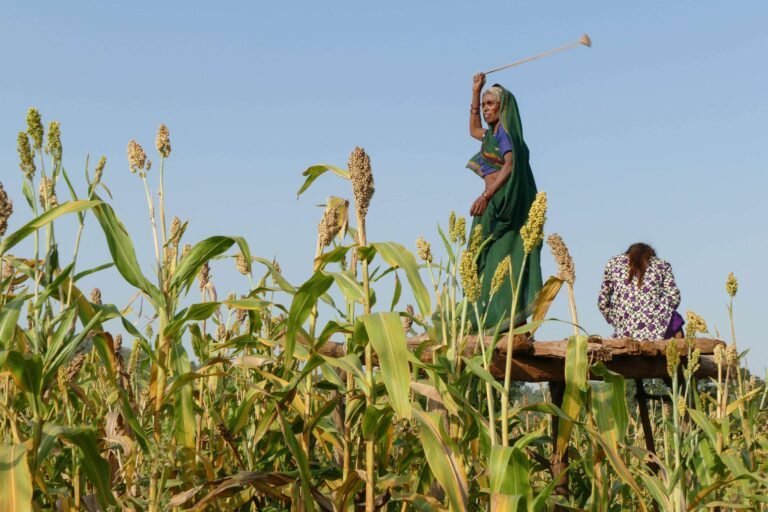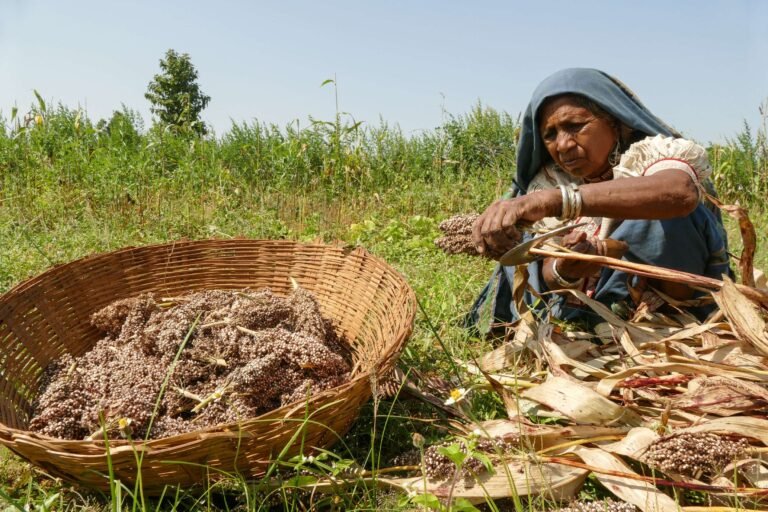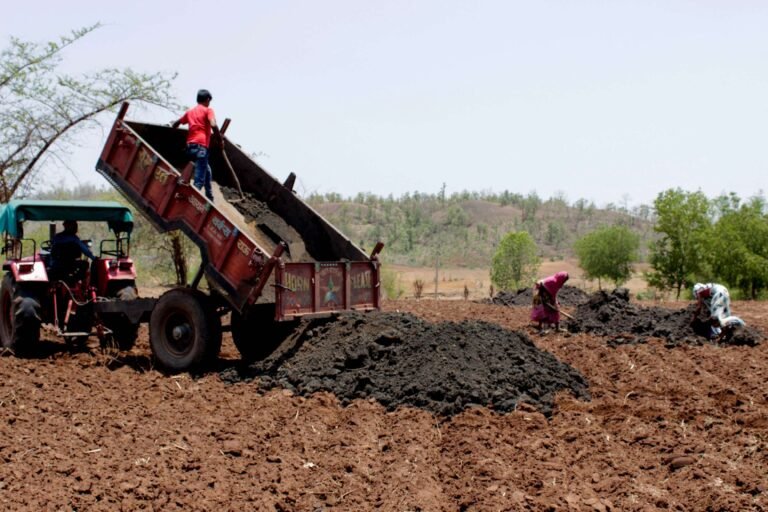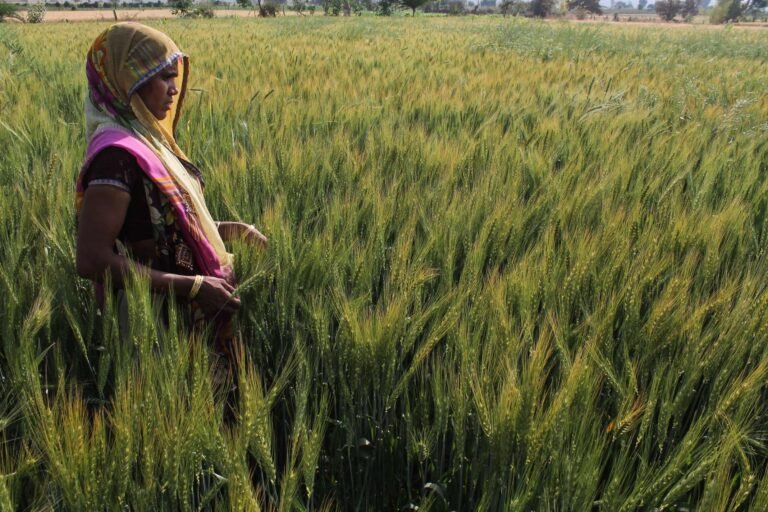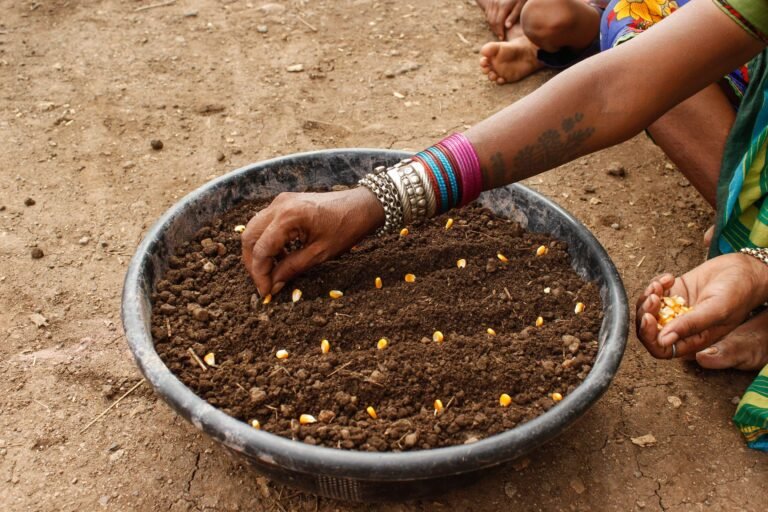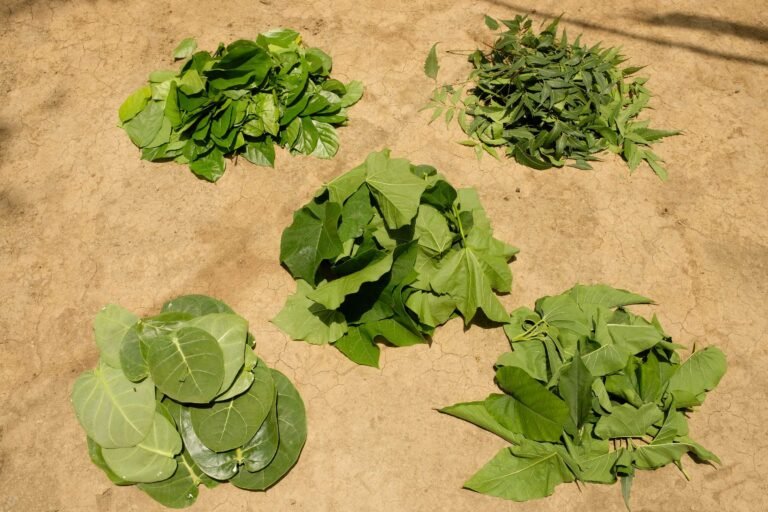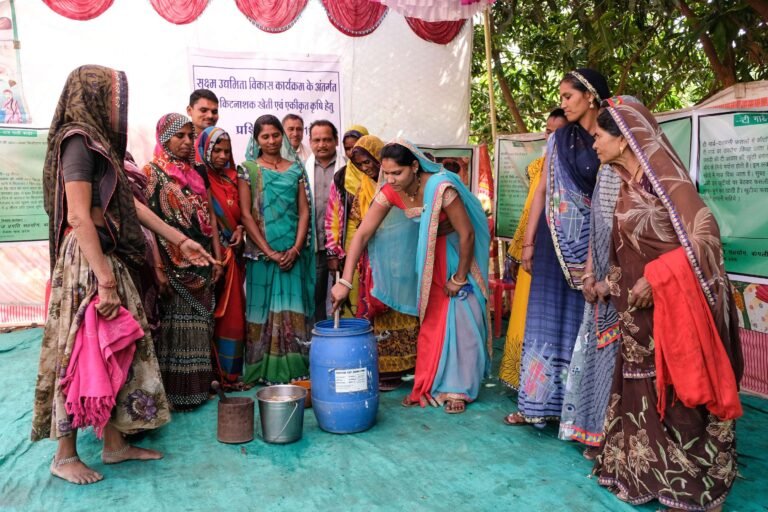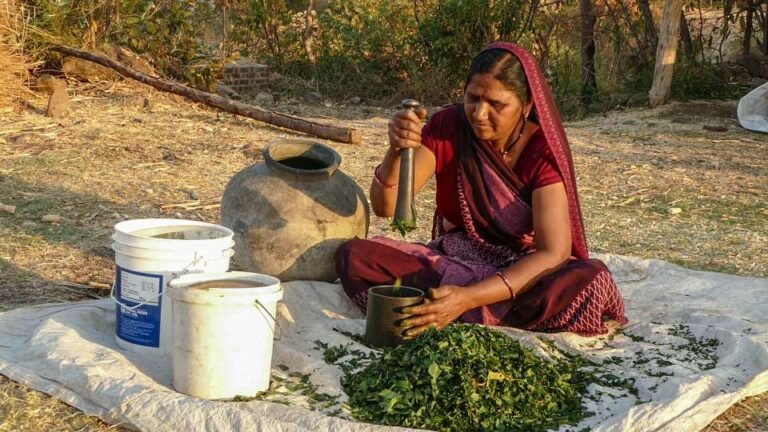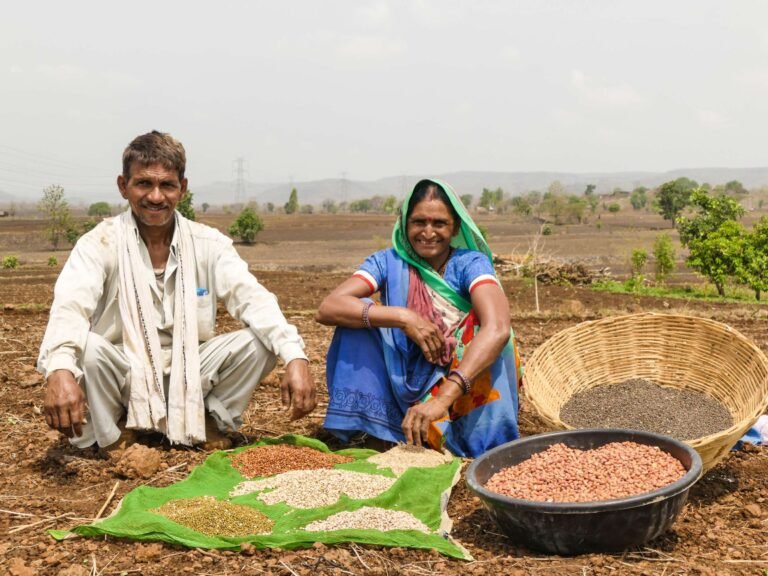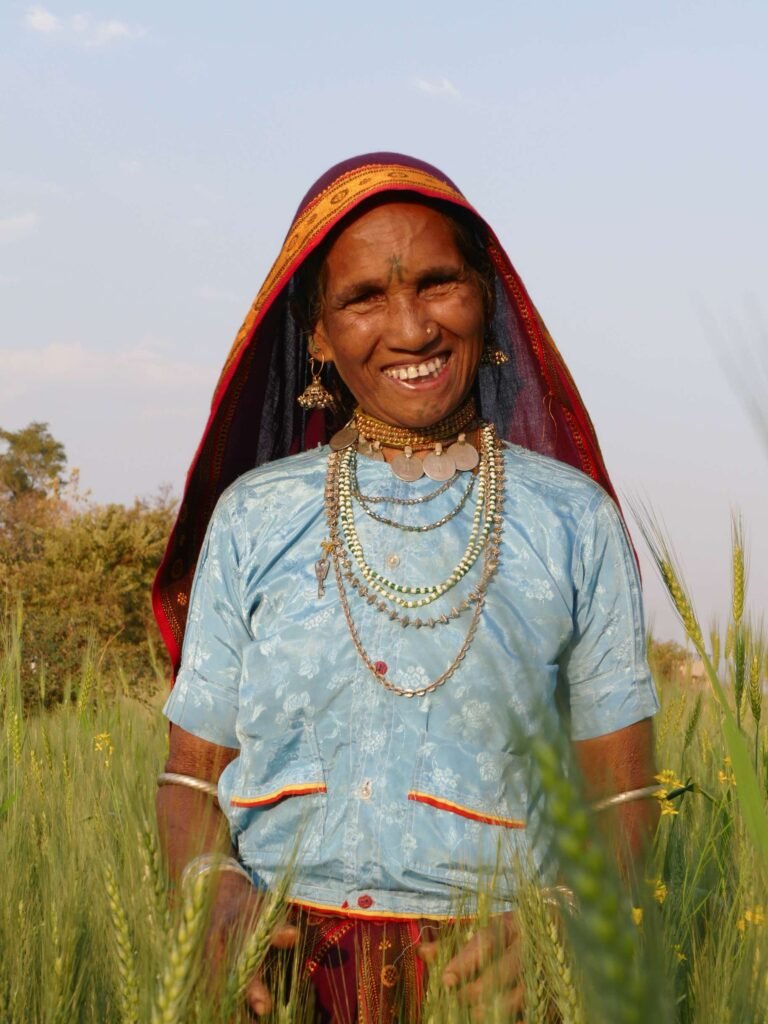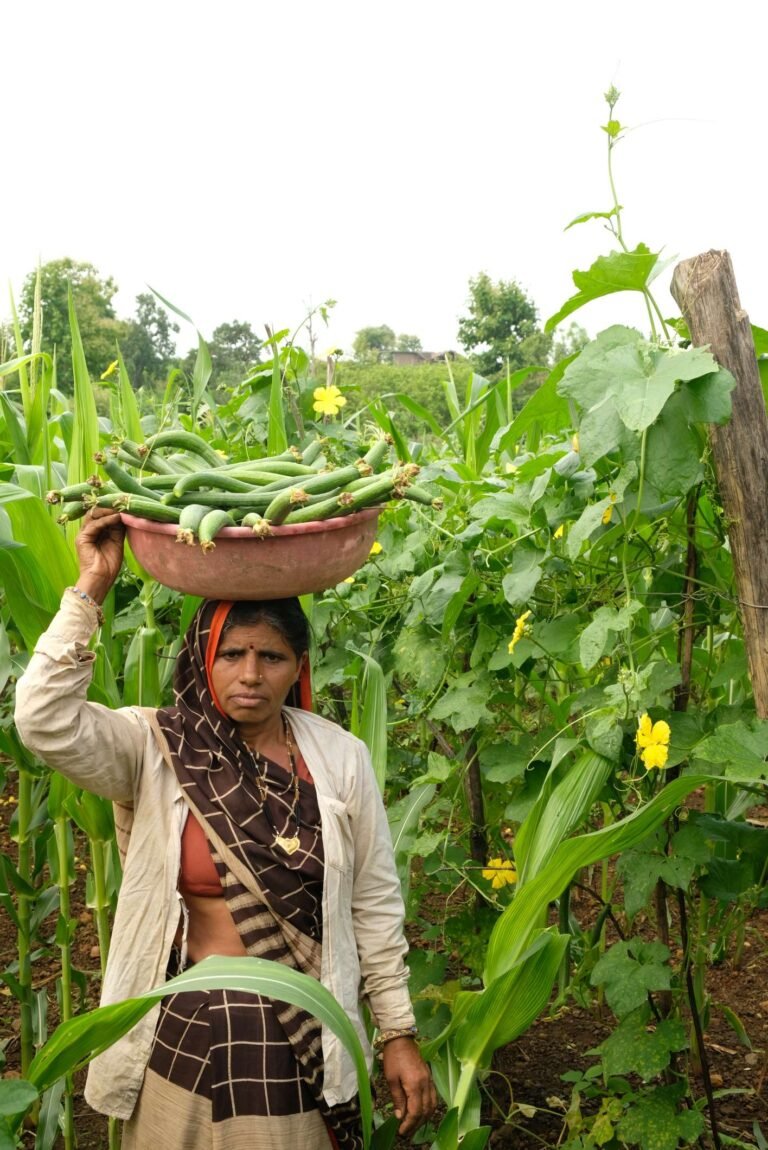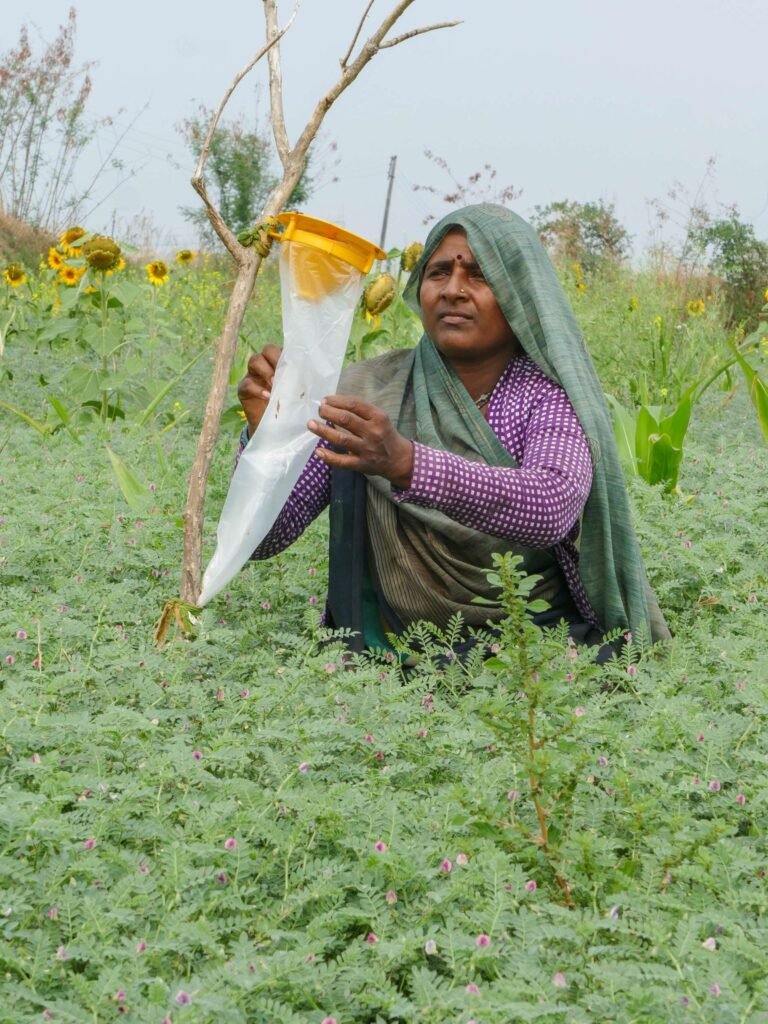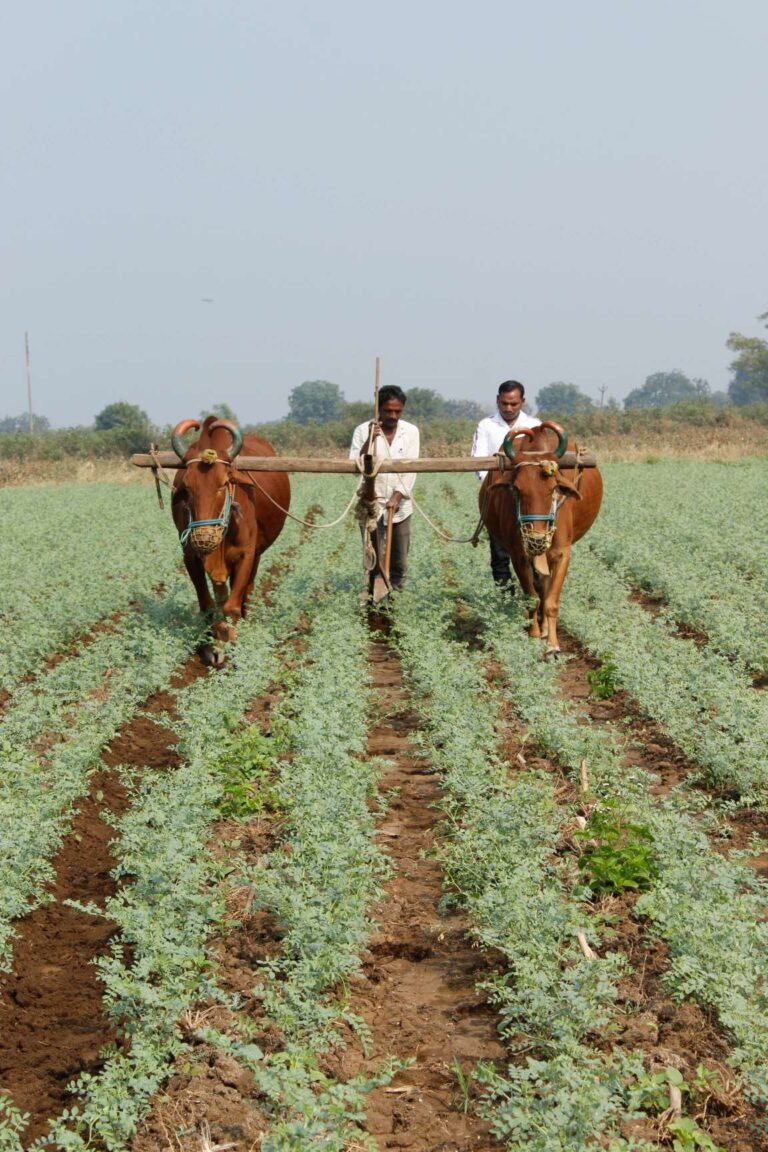Sustainable Agriculture
We have tried to work out a package of agricultural practices finely tuned to the resource endowments of the watershed, which is accessible to the poor (low-cost) and sustainable (low-risk).
Field trials of improved crop varieties suited to the local area and their propagation is one important aspect of the programme. Till now, we have conducted field trials with 120 improved varieties of 15 major crops of the area – sorghum, maize, pigeon pea, soybean, cotton, groundnut, black gram, green gram, chick pea, pearl millet, sesame, foxtail millet and wheat – which give good yields even with low external inputs. Of these we have short-listed 60 varieties as suited to the farming conditions of the local area. Since the resource position of the farmers is highly variable from village to village, these varieties offer a wide menu for the farmers to choose from. These varieties have been developed from the local germplasm by scientists working on-location across India’s drylands and are, therefore, well adapted to this challenging environment. This package of agricultural practices has a major objective of regulating demand for water. Some of the activities include dry sowing of rabi crops like wheat, shift in cropping pattern towards less water-demanding varieties, interventions for enhancement of soil moisture and the use of micro irrigation systems like drips and sprinklers.
SPS is one of the pioneers in working with the idea of No-Pesticide Management (NPM) agriculture as a pathway to sustainable agriculture. Use of synthetic chemical fertilisers and pesticides has grown substantially since the Green Revolution of 1960s. The liberal and continual use of synthetic pesticides (some of which are even banned in India) has disturbing consequences on human health and the farming system, in particular due to the development of pest resistance. The idea of the NPM movement is to encourage farmers to grow crops without any chemical pesticides, create an identity for their produce and link these small producers to markets. NPM agriculture emphasises building up soil fertility through appropriate management practices (such as composting and recycling of agricultural residues, use of farm yard manure, cattle urine, green manure crops like gliricidia, and application of tank silt) with a gradual phasing out of chemical fertilizers.
At present, over 7600 farmers practice NPM agriculture across 6700 hectares. Agriculture extension poses a critical challenge to the uptake of sustainable practices identified by our programme. Over the past several years, there has been a steady erosion of state-supported agriculture extension mechanism, especially in rainfed areas. We attempt to bridge this gap through the system of trained Community Resource Persons (CRPs or “Khet Mitaans”).
Many of the NPM protocols are process driven and therefore require constant monitoring and documentation. The program has now developed a new MIS software to capture data, document processes, and monitor, analyse and assess impact of the programme. This will enable the Khet Mitaans to take up an active advisory role vis-a-vis farmers. Another unique feature of our Agriculture Programme is its use of community videos produced by local community resource persons trained by SPS for agricultural extension work. Over 200 community videos have been produced so far on themes related to agriculture and have proven to be hugely popular among farmers. These are effective as tools of taking the messages of the programme to a larger number of farmers.
